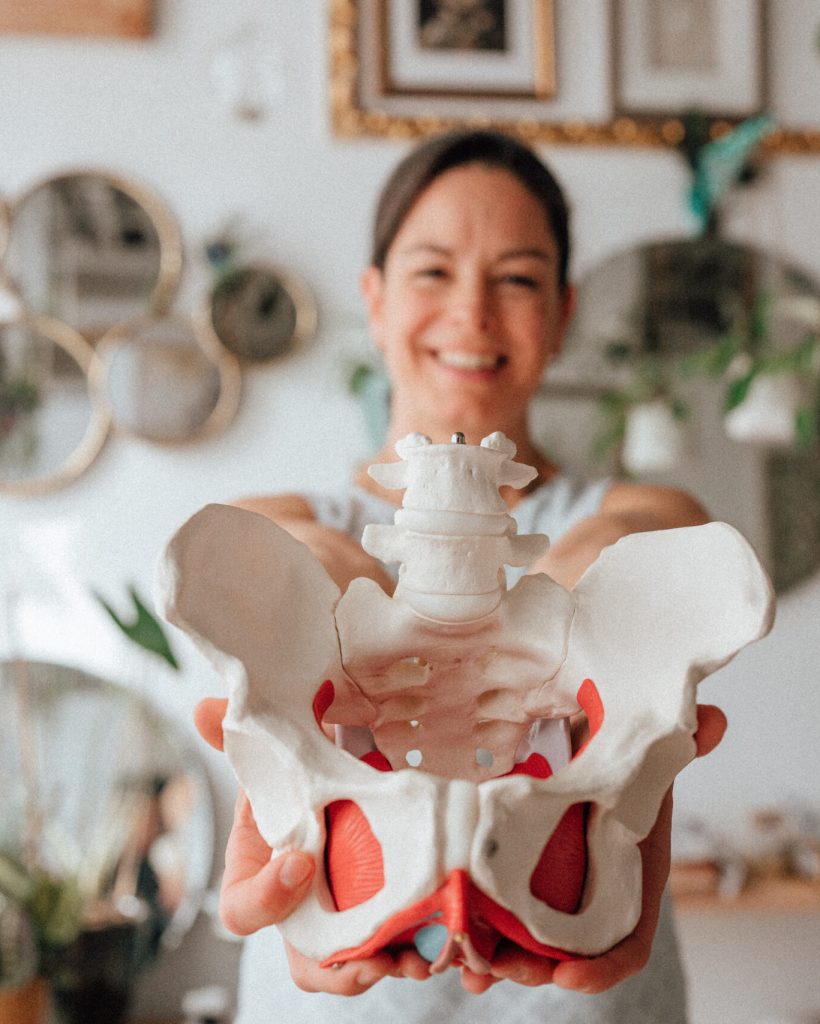Our Services
Pelvic Health Services
Our Healthcare Service
Pelvic Floor Therapy
Pelvic floor therapy may prescribe exercises and retrain motor patterns in order to strengthen or relax the pelvic floor muscles.
Biofeedback
Utilizes electronic monitoring to provide visual feedback on pelvic muscle activity in order to help patients gain an understanding and connect with their pelvic floor.
Manual Therapy
Involves hands-on techniques by a trained physical therapist to address muscle tension, scar tissue, myofascial adhesions, and joint dysfunction in the pelvic, hip and spine regions.
Bladder and Bowel Re-Training
Provides strategies to improve control over bladder and bowel function. Functional bladders empty between 5-7x/day and 0-1x/night. Healthy functional bowels empty 2x/day to 4x/week.
Pelvic Organ Prolapse Therapy
Addresses issues related to the descent of pelvic organs (bladder, uterus, ureter, vaginal, rectum). Rehabilitation involves retraining the breath and using exercises to reduce the severity and associated symptoms. Although surgery may be effective for some clients, learning new breathing and movement patterns will reduce a risk of relapse.
Reduce Nerve pain/entrapment
Pelvic Joint Mobilization
Involves targeted skilled manual therapy techniques to improve pelvic and hip mobility in order to reduce pain in pelvic joints.
Best Medical & Healthcare
Trust Us To Be There To Help All & Make Things Well Again
Choose Syracuse Pelvic PT for a comprehensive and patient-focused pelvic physiotherapy experience. Schedule your free 15- minute consultation today and embark on a journey to improved pelvic health.
Medical Advices & Check Ups
Trusted Medical Treatment
Not accepting issurance, Cash based physiotherapy only
Help & FAQ
General Question
Frequently Asked Questions (FAQ) on Pelvic Floor Therapy
Pelvic Floor Therapy can address a variety of conditions, including but not limited to pelvic pain, urinary and fecal incontinence, painful intercourse, pelvic organ prolapse, and pre and postpartum concerns.
Pelvic Floor Therapy is a specialized branch of physical therapy that focuses on the pelvic region while considering implications of the hips and low back. Therapists receive additional training to address the unique needs and sensitivities of the pelvic floor muscles and associated functions of the bowel and bladder.
A typical session involves an initial assessment to understand the individual's symptoms and medical history. Tests and measurements include hip and back range of motion and strength testing as well as assessment of the pelvic floor muscles. The therapist then develops a personalized treatment plan, which may include exercises, manual therapy, and education on lifestyle modifications.
The number of sessions varies based on the individual's condition and response to therapy. In general, a course of treatment may range from a 3-4 sessions to several months of bi-monthly sessions, depending on the severity and chronicity of symptoms



